The British Red Cross Society is the United Kingdom body of the worldwide neutral and impartial humanitarian network the International Red Cross and Red Crescent Movement. The society was formed in 1870, and is a registered charity with more than 17,200 volunteers and 3,400 staff. At the heart of their work is providing help to people in crisis, both in the UK and overseas. The Red Cross is committed to helping people without discrimination, regardless of their ethnic origin, nationality, political beliefs or religion. Queen Elizabeth II was the patron of the society until her death on 8 September 2022.

Randy Mamola is an American former professional motorcycle racer and television sports presenter. He competed in Grand Prix motorcycle racing between 1979 and 1992. A 13-time Premier Class race winner, Mamola was one of the most charismatic Grand Prix road racers of his generation, becoming a favourite because of his interaction with race fans both on and off the track as well as his aggressive and spirited riding style.

Motorcycling is the act of riding a motorcycle. For some people, motorcycling may be the only affordable form of individual motorized transportation, and small-displacement motorcycles are the most common motor vehicle in the most populous countries, including India, China and Indonesia.

Ronald Haslam is an English former Grand Prix motorcycle road racer who had been racing for over thirty years, winning two World titles, four British championships and having ridden in almost 110 GPs. Haslam spends much of his time helping his son Leon Haslam in his racing career and previously trained riders and racers alike at his former Race School based at Donington racetrack, Leicestershire.
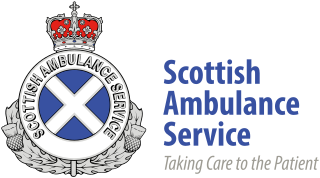
The Scottish Ambulance Service is part of NHS Scotland, which serves all of Scotland's population. The Scottish Ambulance Service is governed by a special health board and is funded directly by the Health and Social Care Directorates of the Scottish Government.
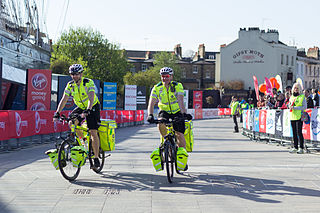
St John Ambulance is a volunteer-led, charitable non-governmental organisation dedicated to the teaching and practice of first aid and the support of the national emergency response system in England. Along with St John Ambulance Cymru, St John Ambulance Northern Ireland, and St John Scotland, it is one of four United Kingdom affiliates of the international St John Ambulance movement.

Yorkshire Ambulance Service NHS Trust ("YAS") is the NHS ambulance service covering most of Yorkshire in England. It is one of ten NHS Ambulance Trusts providing England with emergency medical services as part of the National Health Service it receives direct government funding for its role.

Emergency medical services in the United Kingdom provide emergency care to people with acute illness or injury and are predominantly provided free at the point of use by the four National Health Services (NHS) of England, Scotland, Wales, and Northern Ireland. Emergency care including ambulance and emergency department treatment is only free to UK residents and a charge may be made to those not entitled to free NHS care.

Freewheelers Emergency Voluntary Service (EVS) is a blood bike charity based in South West England. Founded in Weston-super-Mare in 1990, it is funded by public donations and staffed by unpaid volunteers.
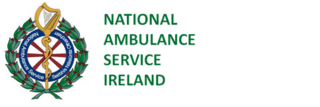
The National Ambulance Service is the statutory public ambulance service in Ireland. The service is operated by the National Hospitals Office of the Health Service Executive, the Irish national healthcare authority.

A motorcycle ambulance is a type of emergency response vehicle which carries either a solo paramedic, emergency medical technician, or first responder to a patient; or may also be used with a trailer or sidecar for transporting patients. Because of its small size and agile performance, a motorcycle ambulance is able to respond to a medical emergency much faster than a car or conventional ambulance vehicle in heavy traffic, which can increase survival rates for critically ill patients, especially those in cardiac arrest.
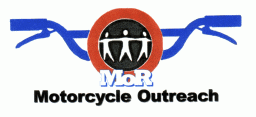
Motorcycle Outreach is a charitable non-profit organisation which works to introduce effective healthcare delivery in remote areas of developing countries. Motorcycle Outreach was inspired by Riders for Health and applies the best practices from that organisation's success to countries outside the African continent.

The following outline is provided as an overview of motorcycles and motorcycling:

Severn Freewheelers Emergency Voluntary Service is a blood bike charity based in the Severn Valley in western England. Founded in 2007, it provides a free motorcycle courier service to hospitals in the region, operating a fleet of emergency-equipped motorcycles which are ridden and co-ordinated by volunteers. Severn Freewheelers is a founder-member of the Nationwide Association of Blood Bikes (NABB) and co-operates with similar organisations in the area including Freewheelers EVS, SERV and Midland Freewheelers.

A blood bike is a specialist motorcycle modified for use as a courier vehicle for the prompt transportation of urgent and emergency medical items; primarily including blood, and also including X-rays, tissue samples, surgical tools, human milk, spinal fluids, drugs, and documentation; between hospitals and other healthcare facilities.
The Yamaha AG100 is a Yamaha motorcycle introduced in 1973 for use in agriculture, humanitarian aid and other rural professional use. It is only marketed in select regions, and is popular in Africa, Latin America, Australia, and New Zealand. Initial advertisements described it as, "built tough for tough Australian farm use". The bike has a single cylinder two-stroke engine, with five gears, and weighs 99 kg (218 lb) dry.

The Aman Foundation is a non-profit trust based in Karachi, Pakistan. It was established in 2008 by Arif and Fayeeza Naqvi. The foundation aims to improve healthcare and education in Pakistan through direct interventions and grant-giving initiatives to high-impact organizations.

The Cagiva C589 was a racing motorcycle made by Cagiva, which was used in the 500cc class of Grand Prix motorcycle racing during the 1989 season. The name is formed by an amalgamation of words and letters, namely the "C", "5" and "89". The "C" stands for the company (Cagiva), the "5" stands for the class the company races in as well as the engine capacity (500) and the "89" stands for the season the bike raced in (1989). The bike replaced the C588 model used in 1988 and was replaced by the C590, used in 1990.

Blood Bikes Wales is a blood bike charity based in Wales. Founded in 2011, it provides a free motorcycle courier service to NHS Wales hospitals across the country, operating a fleet of motorcycles which are ridden and co-ordinated by volunteers. Blood Bikes Wales is a member of the Nationwide Association of Blood Bikes (NABB) and co-operates with similar organisations in England.
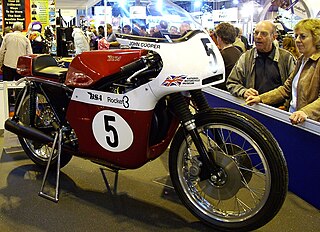
The Transatlantic Trophy was an annual series of motorcycle races between the United Kingdom and America held from 1971 to 1988 and again in 1991. They were mostly held over the Easter weekend at Brands Hatch, Mallory Park and Oulton Park, although some races were held at Donington Park and Snetterton. Three different specifications of motorcycles were used in the series at various times: AMA/F750, Superbike and GP.


















